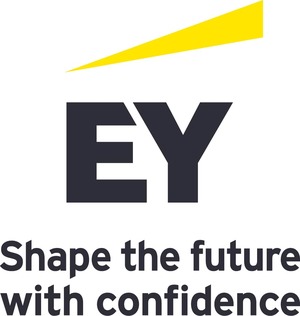- 81% of US consumers are buying fewer products
- 39% of US consumers expect to spend less this holiday season
- 67% of US consumers agree that shifting to private labels is helping them save money
NEW YORK, Nov. 9, 2023 /PRNewswire/ -- The 13th edition of the EY Future Consumer Index (FCI), a global study surveying more than 22,000 consumers across 28 countries, including 1,500 in the US, signals that US consumers are focused on finding the best deals rather than prioritizing experiences, brand loyalty or convenience. Inflation and high interest rates continue to impact US consumers' wallets as they head into the holiday season, with most still worried about the high price of groceries, creating opportunities for new brands or private labels in their homes.
The Affordability First segmentation of US consumers continues to take the top spot (36%, increasing 10% points since October 2022), while Experience First has seen a momentous decline compared with the last festive season (12% of consumers surveyed, decreasing 11% points since October 2022), falling behind consumers in the Health First (26%), Planet First (14%) and Society First (12%) segmentations.
"Cost-strained consumers want to know they are getting a deal, or they simply won't prioritize a purchase," said Kathy Gramling, EY Americas Consumer Industry Markets Leader. "Traditionally, brands and retailers have turned to big moments like Black Friday and Cyber Monday to drive holiday demand, but we've seen that many consumers are trying to manage their budgets and have been preparing and shopping sales all year round."
Sales are no longer a 'moment in time.' With inflation in the US still at record levels, it's no surprise that 62% of consumers are extremely concerned about the rising cost of living. While 50% of consumers expect to spend about the same on the next big shopping sale vs. previous years, overall, 39% of consumers expect to spend less this holiday season.
Overarchingly, 81% of US consumers are planning to buy fewer items in general – across all categories – to save money. Many consumers are honing in just on the essentials, with 46% noting they're only purchasing essentials at this time. Additionally, findings reveal that 48% of consumers are shopping equally online and in-store for their seasonal shopping and sales events, while 42% are sticking mostly to online.
"These shopping habits support the need for a connected retail ecosystem and data-driven insights," said Isaac Krakovsky, EY Americas Retail Leader. "There is a huge opportunity for retailers to leverage new technology to enhance their consumers' shopping experience both in-store and online. Through AI, retailers can better anticipate customer needs, and orchestrate the right conversations to create personalized assortments, experiences and offers."
FCI shows that "moderate" or "complete" trust in things generated by AI remains highest for product purchase reminders (59%), tailored promotions and deals (58%), the use of augmented reality (55%) and personally customized recommendations (53%).
Consumers shift away from spending on experiences. US consumers are also more cautious about spending on luxury or premium experiences, including travel, recreational activities, and beauty and wellness. Coming out of the pandemic, consumers had pent-up demand and spent on premium experiences. That's not the case today. Consumers are spending less on convenience and experience and instead looking for more cost-effective alternatives. For example, 52% are cooking more at home and 45% are spending more time at home in general. Additionally, 48% of consumers are expecting to spend less on vacations over the next three to four months, and 48% plan to spend less on recreational activities.
Private labels cut costs … without cutting quality. As consumers continue to find new and innovative ways to save money, many are turning to private labels as a key alternative. Sixty-seven percent of consumers agree that private labels are helping them save money. Sixty-nine percent note that private labels satisfy their needs just as well as brands, with 57% claiming that private labels are increasingly better-quality products. We are seeing a major shift away from brand loyalty, as consumers continue to re-evaluate their spending throughout the year. This shift is becoming even more evident within the food sector, where 64% of consumers are willing to purchase private-label packaged food and 63% are willing to purchase fresh food that's private label.
The latest edition of the EY Future Consumer Index is available at: ey.com/FCI13.
About EY
EY exists to build a better working world, helping to create long-term value for clients, people and society and build trust in the capital markets.
Enabled by data and technology, diverse EY teams in over 150 countries provide trust through assurance and help clients grow, transform and operate.
Working across assurance, consulting, law, strategy, tax and transactions, EY teams ask better questions to find new answers for the complex issues facing our world today.
EY refers to the global organization and may refer to one or more of the member firms of Ernst & Young Global Limited, each of which is a separate legal entity. Ernst & Young Global Limited, a UK company limited by guarantee, does not provide services to clients. Information about how EY collects and uses personal data, and a description of the rights individuals have under data protection legislation are available via ey.com/privacy. EY member firms do not practice law where prohibited by local laws. For more information about our organization, please visit ey.com.
Ernst & Young LLP is a client-serving member firm of Ernst & Young Global Limited operating in the US.
About the EY Future Consumer Index
The EY Future Consumer Index tracks changing consumer sentiment and behaviors across time horizons and global markets, identifying the new consumer segments that are emerging. The Index provides regular longitudinal indicators and a unique perspective on which changes are temporary reactions to a current disruption and which point to more fundamental shifts. The 13th edition of the EY Future Consumer Index surveyed 22,000 respondents across the UK, France, Germany, Denmark, Finland, Sweden, Norway, Italy, Spain, Netherlands, US, Canada, Australia, New Zealand, India, China, KSA, Brazil, Japan, Indonesia, Mexico, South Africa, Chile, Argentina, Thailand, Nigeria, Vietnam and South Korea.
SOURCE EY

WANT YOUR COMPANY'S NEWS FEATURED ON PRNEWSWIRE.COM?
Newsrooms &
Influencers
Digital Media
Outlets
Journalists
Opted In






Share this article